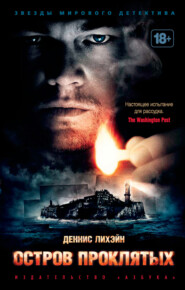По всем вопросам обращайтесь на: info@litportal.ru
(©) 2003-2024.
✖
The Terrorists
Автор
Год написания книги
2019
Настройки чтения
Размер шрифта
Высота строк
Поля
‘In a terraced house on Tennisvägen. The woman who lives in the house and appears to be his mistress came home at about five and found him dead in the bath. He was alive when she left the house at half-past six in the morning, she says.’
‘How long have you been there?’
‘She called us at five thirty-five,’ said Pärsson. ‘We got here almost exactly two hours ago.’
He paused for a moment and then went on. ‘I imagine it's a case we could manage on our own, but I thought I'd better inform you as soon as possible. It's difficult at this stage to decide just how complicated the investigation will be. The weapon hasn't been found.’
‘So you want us to come in on it?’ said Martin Beck.
‘If I hadn't known that you weren't actually working on a case at the moment, I wouldn't have bothered you at this stage. But I wanted your advice, and I'm told you usually like to come on a case when it's reasonably fresh.’
Pärsson sounded slightly uncertain. He admired all high-ranking officers, and Martin Beck could be considered one of those, but most of all he respected his professional skill.
‘Of course,’ said Martin Beck. ‘You're quite right. I'm glad you called me up so soon.’
It was true. Often the police in country areas waited too long before calling in the Murder Squad, either because they overestimated their own resources and skills or misjudged the scope of the investigation, or because they themselves wanted to rap the experts in Stockholm over the knuckles and have the honour of solving a murder. When they finally had to admit their limitations and Martin Beck and his men went to the place, they were often faced with a situation in which all the clues had been destroyed, all reports were illegible, witnesses had lost their memories, and the culprit had already established residence in Tahiti or had died of old age.
‘When can you come?’ said Pärsson, noticeably relieved.
‘I'll get started right away. I'll just call Koll—… Skacke, and see if he can drive me out.’
Martin Beck thought of calling Kollberg in situations like this out of habit. He supposed it was because his subconscious would not accept the fact that they were no longer working together. During the first few months after Kollberg resigned, he had actually called him several times in emergencies.
Benny Skacke was at home and as usual sounded eager and enthusiastic. He lived in southern Stockholm with his wife Monica and their one-year-old daughter. He promised to be at Köpmangatan within seven minutes, and Martin Beck went down to the street to wait for him. Exactly seven minutes later Skacke arrived in his black Saab.
On the way out to Rotebro he said, ‘You heard about Gunvald, didn't you? That he got hit in the stomach by the President's head?’
Martin Beck had heard and said, ‘He was lucky to get away with just that.’
Benny Skacke drove for a while in silence, then said, ‘I was thinking about Gunvald's clothes. He's always so careful about them and always gets them ruined. He must have gotten absolutely covered with blood.’
‘Must have,’ said Martin Beck. ‘But he got out of it alive, so he's still ahead of the game.’
‘Ahead is right!’ said Skacke with a snort of laughter.
Benny Skacke was thirty-five and during the last six years had often worked with Martin Beck. He reckoned he had gained all his basic knowledge of criminal work by observing and studying the work of Lennart Kollberg and Martin Beck. He had also noted the special rapport that existed between the two men and had been amazed how easily they read each other's thoughts. He realized that such rapport would never arise between himself and Martin Beck, and he was aware that in Martin Beck's eyes he was a poor substitute for Kollberg. This insight often made him unsure of himself in Martin Beck's company.
For his part, Martin Beck understood very well how Skacke felt and did his best to encourage him and show that he appreciated his efforts. He had watched Skacke mature during the years he had known him and he knew Skacke worked hard, not only to do well in his career but also to become a really good policeman. He regularly spent his free time building up his physique and practising on the firing range, and he studied constantly – law, sociology and psychology – and he also kept himself well informed on what was happening within the force, both technically and organizationally.
Skacke was also a good driver and had a better knowledge of Stockholm and all its new suburbs than any taxi driver. He had no difficulty finding the address in Rotebro and stopped at the end of the row of parked cars on Tennisvägen.
Вы ознакомились с фрагментом книги.
Приобретайте полный текст книги у нашего партнера:
Приобретайте полный текст книги у нашего партнера:










